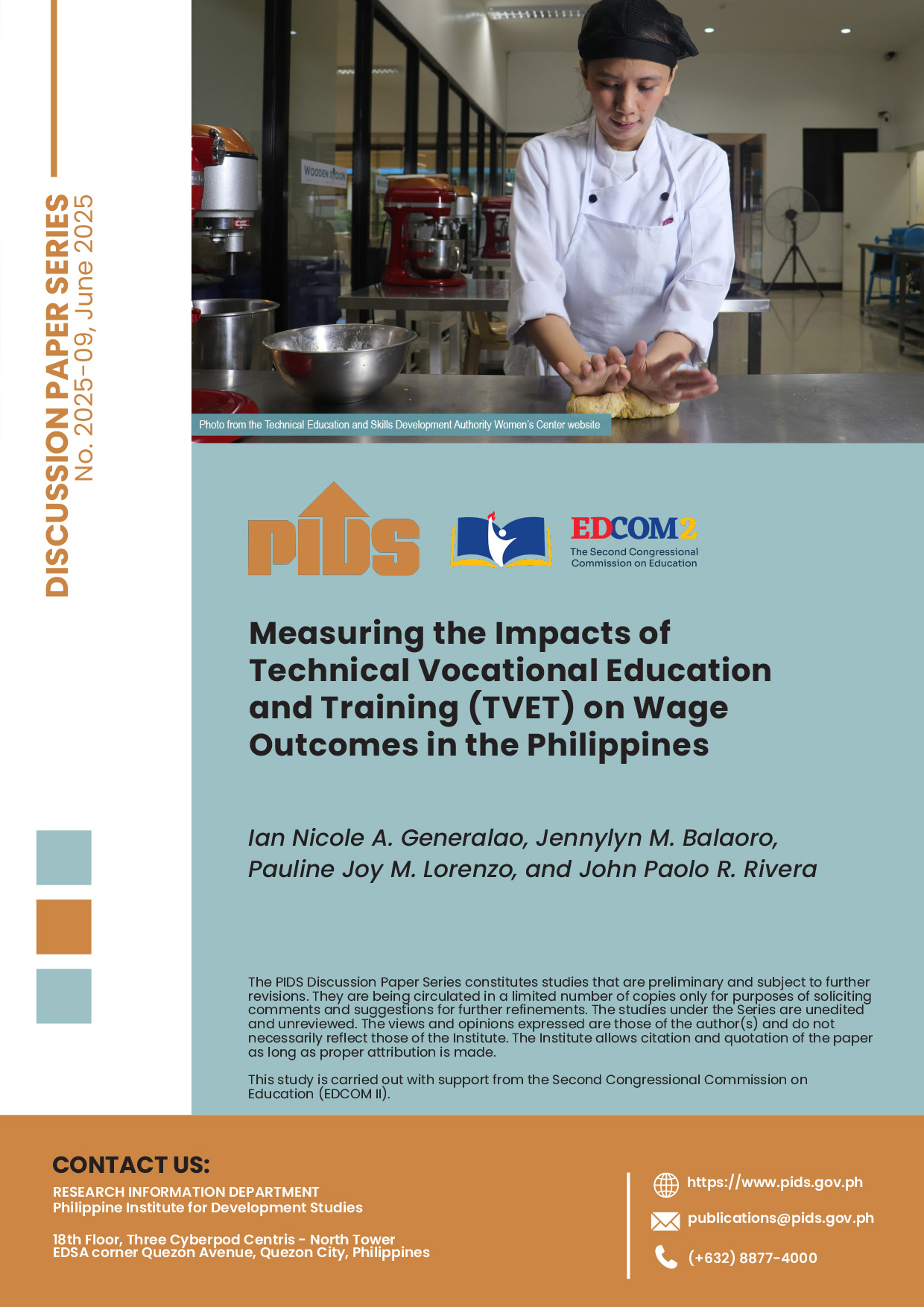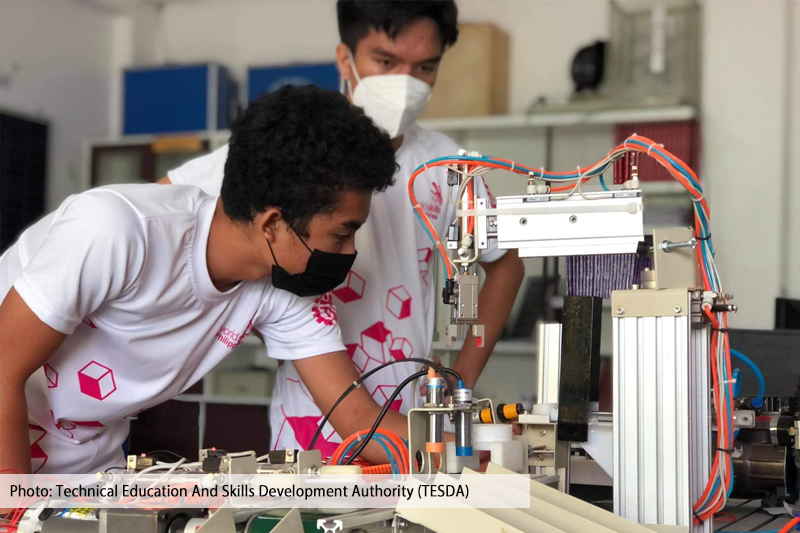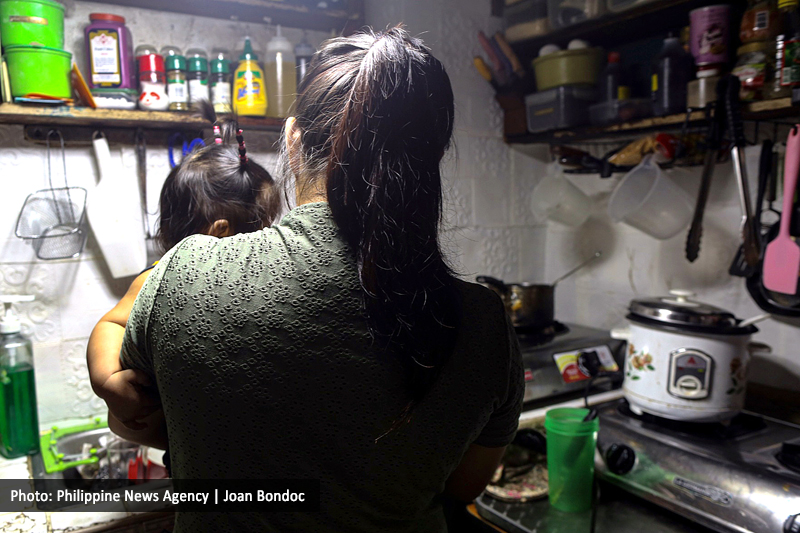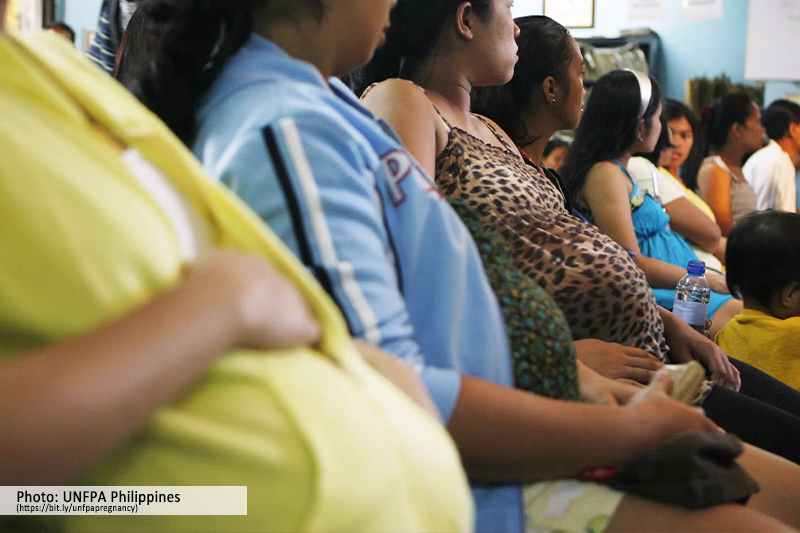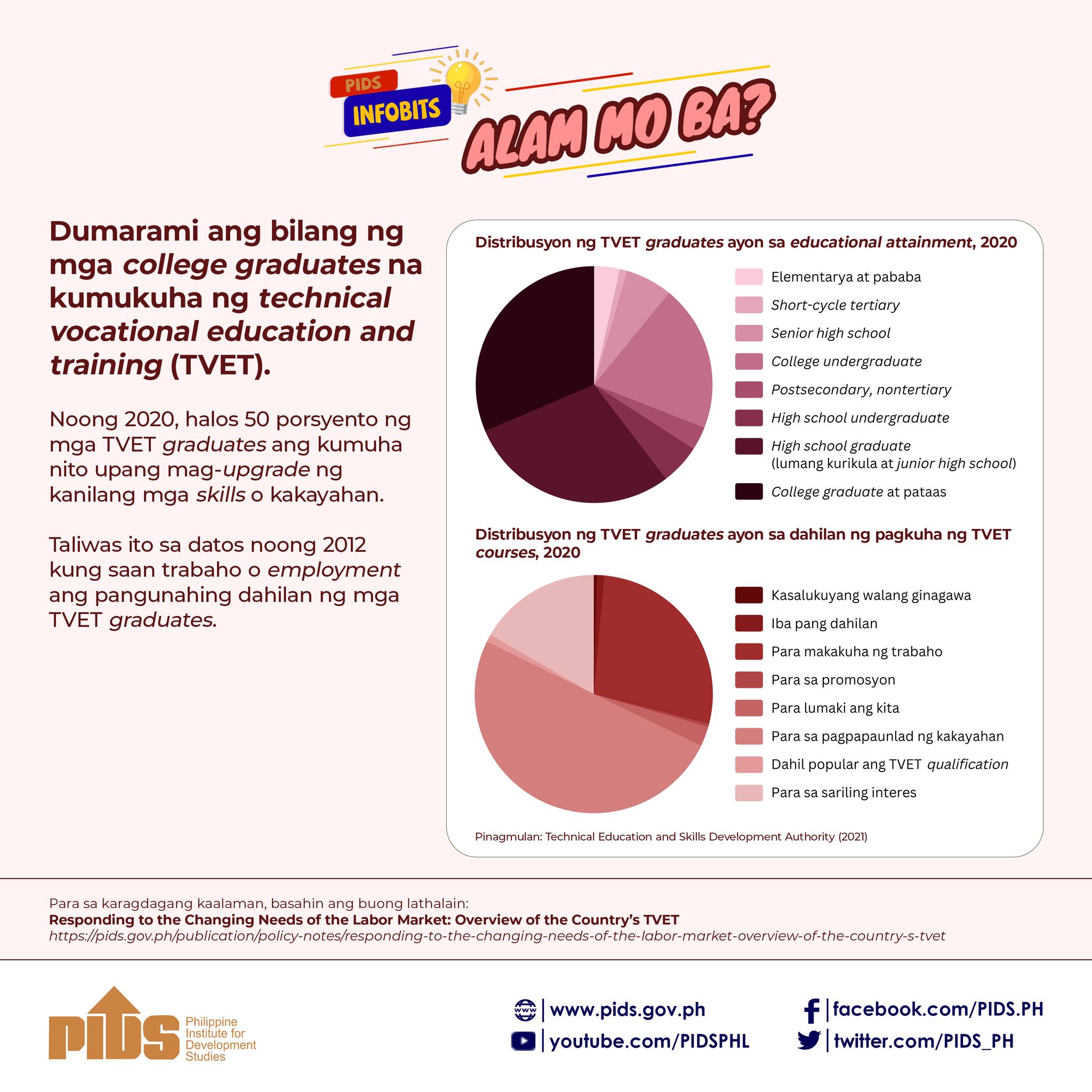Housework keeps millions of women from accessing employment opportunities, according to state-owned think tank Philippine Institute for Development Studies (PIDS).
In a policy note, PIDS Senior Research Fellow Connie Bacuyan-Dacuycuy and De La Salle University’s Lawrence Dacuycuy said housework remains a woman’s domain in the home, preventing them from participating in the labor force.
Since they are not part of the labor force, their economic contributions in the country have been limited and/or undervalued.
Men provide and their place is in the labor market. As a result, women’s contributions to society tend to become undervalued, if not invisible,” the authors said.
The authors added the time required to complete housework, which includes taking care of children and the elderly, reduces the chances of women to have regular paying jobs.
If they have regular jobs, the weight of performing housework remains fixed on their shoulders. This is often termed “second shift”, overburden in sociology researches and time poverty in studies on multidimensional poverty.
However, when women’s wages increase, their husbands’ time devoted to housework also increases, which according to the authors, may be interpreted as a way to support their career.
Given that taking care of children and the elderly typically falls on women’s sphere of responsibilities, women may find it hard to focus on their market work, in case they have one,” the authors said.
Hence, women may be situated in a relatively disadvantageous position, if not, face de facto discrimination in the formal labor market,” they added.
To improve women’s plight, the authors urged the government to explore the imposition of a four-day work week and tax incentives for salaried workers.
The four-day work week will allow both women and men more time at home and share the burden of housework more equally.
Tax breaks, meanwhile, will give households more financial room to take on helpers and/or provide supplemental care for children and the elderly.
The study also urged the government to explore providing affordable day care and tutorial services, so that children may get good supplementary care while their parents are at work.
Workers in the informal sector, who are seldom covered by labor market policies and regulations, should also be prioritized and given more protection, the authors recommended.
In a policy note, PIDS Senior Research Fellow Connie Bacuyan-Dacuycuy and De La Salle University’s Lawrence Dacuycuy said housework remains a woman’s domain in the home, preventing them from participating in the labor force.
Since they are not part of the labor force, their economic contributions in the country have been limited and/or undervalued.
Men provide and their place is in the labor market. As a result, women’s contributions to society tend to become undervalued, if not invisible,” the authors said.
The authors added the time required to complete housework, which includes taking care of children and the elderly, reduces the chances of women to have regular paying jobs.
If they have regular jobs, the weight of performing housework remains fixed on their shoulders. This is often termed “second shift”, overburden in sociology researches and time poverty in studies on multidimensional poverty.
However, when women’s wages increase, their husbands’ time devoted to housework also increases, which according to the authors, may be interpreted as a way to support their career.
Given that taking care of children and the elderly typically falls on women’s sphere of responsibilities, women may find it hard to focus on their market work, in case they have one,” the authors said.
Hence, women may be situated in a relatively disadvantageous position, if not, face de facto discrimination in the formal labor market,” they added.
To improve women’s plight, the authors urged the government to explore the imposition of a four-day work week and tax incentives for salaried workers.
The four-day work week will allow both women and men more time at home and share the burden of housework more equally.
Tax breaks, meanwhile, will give households more financial room to take on helpers and/or provide supplemental care for children and the elderly.
The study also urged the government to explore providing affordable day care and tutorial services, so that children may get good supplementary care while their parents are at work.
Workers in the informal sector, who are seldom covered by labor market policies and regulations, should also be prioritized and given more protection, the authors recommended.


